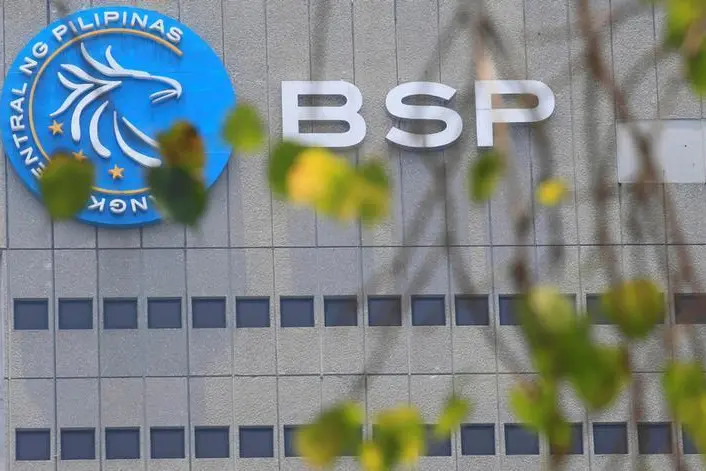PHOTO
The peso has been a 'clear laggard' among Asian currencies against the dollar recently, which may prompt the Bangko Sentral ng Pilipinas (BSP) to defend the local unit and keep it below the 58 to $1 level, according to British banking giant HSBC
In a report, Lenny Jin, global foreign exchange strategist at HSBC, said that despite the peso's slow recovery against the dollar, the British bank is adopting a 'sell on rally' stance.
'We expect P58 to be forcefully defended by the BSP and upside in spot rates is therefore limited, in line with the BSP's hawkish tone when peso-dollar rate approached P58 on April 25,' Jin said.
After the peso slumped to 57.78 to $1 on April 25, BSP Governor Eli Remolona Jr. said the central bank is ready to mitigate any unnecessary movement and excessive volatility in the foreign exchange market.
However, the BSP chief recently said that the central bank has been intervening less in the foreign exchange market and only does so to mitigate stress as well as to keep order.
The BSP usually dips into the gross international reserves (GIR) to smoothen excess volatility in the foreign exchange market.
Jin said the peso's nominal effective exchange rate - or the weighted average of the peso against the currencies of its important trading partners - has weakened to its lowest level since August 2023, when the BSP also intervened and kept the peso below the 57 to $1 level.
'The peso underperformance, despite having one of the strongest growth stories and one of the highest rate levels in Asia, may be seen by the BSP as deviating from fundamentals, which typically triggers intervention,' she said.
Still, the BSP has one of the best track records of defending the peso, Jin said. Moreover, the central bank has enough GIR at its disposal.
'We think markets will have limited appetite to challenge the central bank once they sense a forceful defense,' she said.
Jin also noted that while Remolona's rhetoric during the May 16 policy meeting was a bit dovish, economists from HSBC do not expect the Philippine central bank to cut ahead of the US Federal Reserve.
The outlook was mainly due to 'resilient growth, robust credit demand, various inflationary risks and concerns over FX stability. We think risks are now clearly skewed towards a more hawkish stance by the BSP, over time,' she said.
Market players may also position for some proceeds from dollar bond issuances to be converted back to the peso, she said.
She added that remittance inflows from migrant workers are also seen to pick up seasonally ahead of the start of the school year on July 29.
To tame inflation and stabilize the peso, the BSP Monetary Board raised key policy rates by 450 basis points between May 2022 and October 2023. This helped strengthen the peso back to the 53 to $1 level last year.
However, the peso has depreciated since April. The local unit closed at 57.62 to $1 on Friday, down by 15.5 centavos from its previous finish.
Copyright © 2022 PhilSTAR Daily, Inc Provided by SyndiGate Media Inc. (Syndigate.info).





















